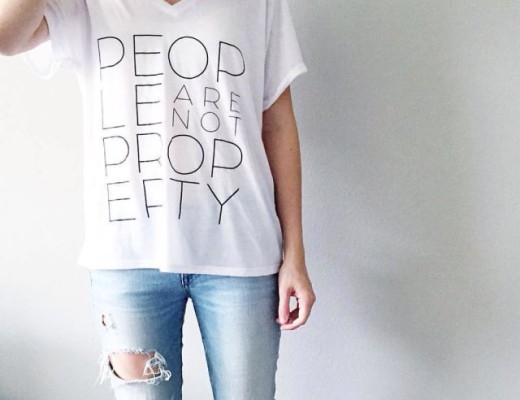January is National Slavery and Human Trafficking Prevention Month, but Trafficking in Persons occurs every day in countries and cities around the world — and very likely the city where you live.

Who is trafficked?
How is someone trafficked?
- False promises of a good job in another city or country
- Sold into the sex trade by parents, husbands, or boyfriends
- False marriage proposals with the intent of creating a bondage situation
- Being kidnapped by traffickers
Once someone is trafficked, they are usually “conditioned” through physical or psychological abuse so that they do not try to run away. Additionally, they may be told that they must work (e.g. through commercial sex work) to pay off a debt — usually of an unknown amount — owed to the trafficker. This illegal practice is also known as debt-bondage.

What are some potential warning signs of human trafficking?
The below list is not exhaustive and represents just a few of the warning signs that may be present. Additionally, the presence of any of these warning signs is not necessarily proof that someone is being trafficked. See also this list from the National Human Trafficking Resource Center.
The person is…
- Frequently with or refers to someone who seems to be in control of/closely watching their situation (e.g., someone else is holding their passport, being dropped off and picked up at work location).
- Regularly moving from one location to another or city to city
- Living in unsuitable conditions with few personal possessions
- Not allowed to move freely (e.g., cannot leave their home or must check-in with someone frequently)
- Fearful of police/authorities
- Unpaid or paid very little
- Showing signs of physical and psychological trauma (e.g. anxiety, lack of memory of recent events, bruising)
- Inconsistent with their story or their conversations seem scripted.
What Can I Do To Help?
To report suspected human trafficking: 1-866-347-2423
To get help from the National Human Trafficking Resource Center: 1-888-373-7888 or text HELP or INFO to BeFree (233733)
The U.S. Department of Health and Human Services (HHS) Office of Trafficking in Persons works to help victims of human trafficking gain access to benefits and services (e.g. food, health care, and employment assistance). HHS can also connect the person to non-profit organizations to further address their individual needs.
Learn More
In addition to the work in India you are supporting through Sudara, there are many organizations working to fight human trafficking and restore the lives of those who are trafficked. Below are three organizations you should know about in the U.S. and globally.
Free the Slaves: An international non-governmental organization (NGO) and lobbying group established to campaign against modern-day slavery around the world.
International Justice Mission: A global organization that works to protect the poor from violence in the developing world by rescuing victims, bringing criminals to justice, restoring survivors, and strengthening justice systems.
Polaris: An organization working to eradicate modern-day slavery by systemically disrupting human trafficking. They do this by responding to victims of human trafficking, equipping key stakeholders and communities to address and prevent human trafficking, and disrupting the business of human trafficking through targeted campaigns.
CNN has also compiled a list of organizations fighting human trafficking within the U.S.
And, here are a few of our favorite brands that are either fighting sex trafficking or working to restore the lives of those who were or are at the highest risk of being trafficked.


